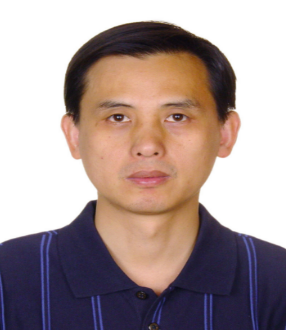
Research Professor
Institute of Quantum Electronics
Research Interests: Magnetic resonance imaging
Office Phone: 86-10-6276 5830
Email: wmw[at]pku.edu.cn
Wang, Weimin is the research professor in the School of Electronics, and has worked in area of Magnetic Resonance Imaging and application in the Institute of Quantum Electronics since 2003. He obtained his M.Sc. from the Institute of Porous Flow and Fluid mechanics, Chinese Academy of Sciences in 1996, and Ph.D. from Wuhan Institute of Physics and Mathematics, Chinese Academy of Sciences in 2001 respectively. His research interests include MRI techniques and its application in medical and petroleum industry.
Dr. Wang has published more than 30 research papers in different journals, such as REV SCI INSTRUM, MAG RESON MED, J PHYS D and MEAS SCI TECHNOL. He has obtained more than 10 Chinese patents. He has ever attended many top international conferences including ENC, ISMRM and RSNA. He has served in the MRI Technical Committee of the China Association for Medical Equipment and review Committee of Beijing Scientific and Technology Award. He is serving as a reviewer of NSFC. He has awarded the first prize award of China Medical Science and Technology (2015), third prize award for Scientific and Technology Advance of Beijing (2010). His research results in medical MRI have been applied in Chinese companies successfully and more than 1 billion yuan RMB (145 million US dollars) sales have been achieved.
Dr. Wang has more than ten research projects including national science and technology major projects, 973 program, 863 project, etc. His research achievements are summarized as follows:
1) Medical MRI techniques: MRI system is indispensable for medical diagnosis in hospital and very expensive. The research and development of domestic MRI system is significant in Chinese healthcare. He conducted key technique researches on MRI hardware including console, magnet, active shielding gradient coil, pulse sequence development platform, etc. A new digital optical MRI console using high-speed serial links and SDR has been built, which increased the SNR by more than 20 percent both in permanent and super-conduct MRI. A pulse sequence development platform has been built from low level and many advanced MRI sequences has been implemented. A 0.5Tesla permanent open MRI magnet has been developed and the consumption of rare earth magnetic material controlled to the minimum by an optimization algorithm.
2) Industry MRI techniques: To detect and visualize the fluid flow in petroleum rock is one of the key factors to improve oil development in laboratory research. However, traditional measurement cannot provide information on the distribution of fluid inner the rock. He focused on the development of a high-pressure & high-temperature MRI system to measure online the petro-physical parameters and visualize the fluid flow inner the rock, and proposed new solution to obtain the porosity, permeability, oil saturation, pore size and oil distribution during flooding experiment.




